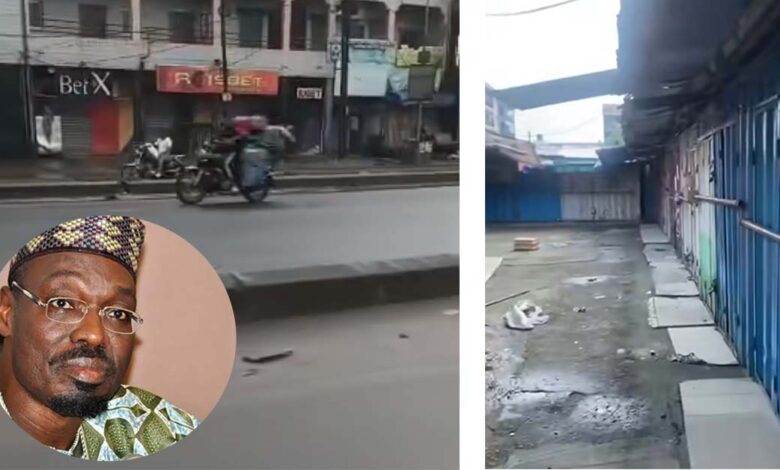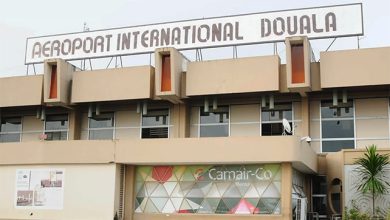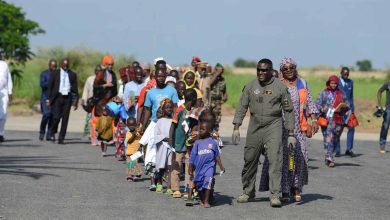Tchiroma Calls for Ghost Town Shutdown After Cameroon Ele...

Tchiroma Calls for Ghost Town Shutdown After Cameroon Ele...
Following a bitterly contested presidential election in Cameroon, opposition leader Issa Tchiroma Bakary has made a dramatic appeal through social media, calling for citizens to bring the nation to a standstill. His message, delivered via Facebook in both French and English, marks a significant escalation in tensions that have already claimed multiple lives and resulted in hundreds of arrests across Cameroon.
In his recent statement, Tchiroma revealed that two of his family members and his personal cook had been kidnapped in the northern city of Garoua on Wednesday night. The opposition leader described the situation as warfare against ordinary Cameroonians, accusing authorities of employing brutal tactics to maintain control. He demanded their immediate release along with all others who have been kidnapped or arbitrarily detained.
The former government minister, who previously served under President Paul Biya for decades before breaking ranks earlier this year, has found himself at the center of a growing storm. According to his statement, Tchiroma was exfiltrated from his home and taken to a secure location by what he called “loyalist soldiers” for his protection. This move suggests deepening fractures within Cameroon’s security apparatus as the political crisis intensifies.
The Constitutional Council announced on Monday that Biya, 92, had won the election with 53.66% against Tchiroma, who received 35.19%. The results are final and cannot be appealed, yet Tchiroma and his supporters have rejected them as fraudulent. Since the Constitutional Council’s proclamation, security forces have clashed with angry protesters in many cities including Douala and Garoua, opposition strongholds, and in the capital, Yaounde.
Violence has marred the post election period. At least four people were killed during clashes between protesters and security forces, with one victim being a female teacher fatally shot as she was returning from work in Garoua. Hundreds have been arrested as opposition supporters demanded credible results.
International organizations have expressed alarm at the government’s response. The European Union stated it was “deeply concerned” by the violent repression of demonstrations, while Human Rights Watch and Amnesty International noted “excessive use of force” against protesters and called for investigations into the deaths.
Phase Three: A Call for Economic Paralysis
Against this backdrop of violence and alleged kidnappings, Tchiroma issued his most ambitious challenge yet. He called for a three-day national shutdown from Monday, November 3 to Wednesday, November 5, 2025, urging citizens to “stand tall” and peacefully resist what he described as “a stolen victory secured through blood and deceit”. The initiative, dubbed Phase Three, asks Cameroonians to close their shops, suspend activities, and remain home in silent protest.
This strategy represents a calculated gamble. Should the shutdown succeed in halting commerce across major cities, particularly in Douala and Yaounde, it would demonstrate the opposition’s organizational capacity and popular support. Conversely, weak participation could undermine Tchiroma’s credibility and embolden the government to dismiss his movement as marginal.
In his televised and digital statement, Tchiroma referenced viral footage of senior regime figures celebrating the official results, saying “Live bullets answered the songs of freedom. Families mourn their martyrs while those responsible celebrate with champagne”.
Paul Biya has ruled the Central African nation since 1982. If he serves out his new seven-year term, Biya would remain in power until he was nearly 100 years old. The country of 30 million, on the world’s youngest continent, has a median age of just 19, meaning most Cameroonians have known only one president.
A number of factors conspired in the 2025 election season to produce the biggest threat to Biya’s long spell in office. The collapse of his traditional electoral coalition robbed him of one of his most reliable bastions of support. Tchiroma, from the country’s north, managed to win support in regions that had consistently backed Biya in the past.
Local civil society groups noted several irregularities in the electoral process, including the presence of deceased voters on electoral lists, unequal distribution of ballot papers, and attempts at ballot box stuffing. These allegations, combined with the government’s forceful response to protests, have deepened public skepticism about the legitimacy of the results.
International Crisis Group has warned that decisions over the next few days will be critical, urging Cameroonian authorities to avoid attempting to resolve the crisis by force. The organization emphasized that state forces should not use lethal force against protesters and that all parties should avoid hate speech.
Interior Minister Paul Atanga Nji announced that Tchiroma will face prosecution for declaring himself the winner and for organizing what the government has described as illegal demonstrations that resulted in casualties and property damage. This legal threat adds another layer of uncertainty to an already volatile situation.
The success or failure of the ghost town strategy will likely depend on several factors: the willingness of traders and workers to forgo daily income, the level of police presence and intimidation, and the solidarity between Francophone and Anglophone regions. Historically, ghost town protests have been more common in Cameroon’s English speaking regions, where separatist movements have employed the tactic. Extending this form of resistance to the predominantly French speaking urban centers would represent a significant shift in opposition tactics.
Whether through the courts, the streets, or negotiated settlement, Cameroon faces a moment of reckoning. For supporters of Tchiroma, the coming days represent a test of national will against entrenched authority. For the Biya government, the challenge is to maintain order without further inflaming public anger or damaging the country’s already fragile international reputation.
As the Monday deadline approaches, one certainty remains: the outcome will reshape Cameroon’s political landscape for years to come, regardless of whether shops remain shuttered or open for business.





